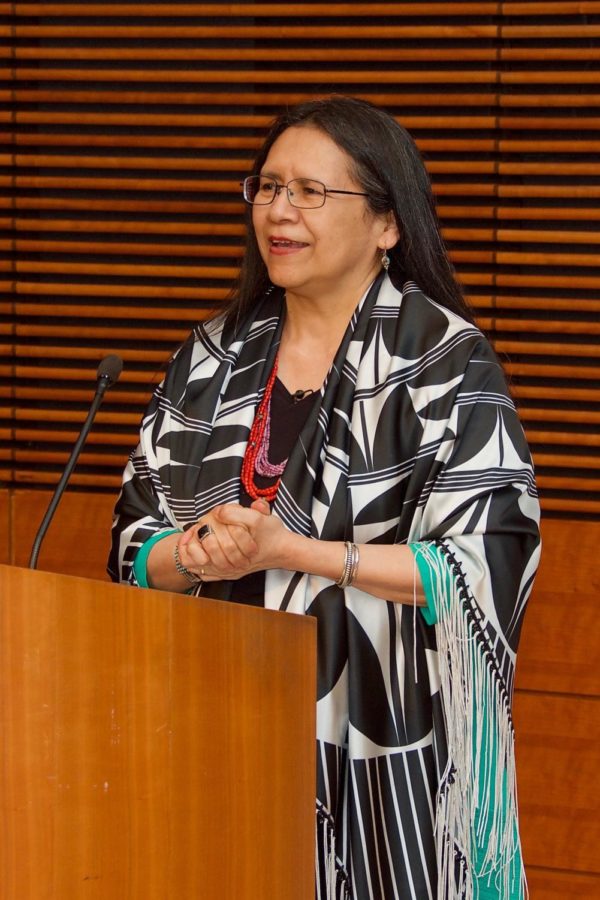Lecture to feature Indigenous activist on literature
Debbie Reese, scholar, author and activist of Indigenous children’s literature and the teaching of Indigenous people’s and history, will be featuring Indigenous children’s literature in her lecture at Iowa State.
February 25, 2020
Iowa State’s lecture program is presenting a lecture by an activist on indigenous literature.
Debbie Reese, who is a scholar, author and activist of indigenous children’s literature and the teaching of indigenous people’s and history, is the speaker at the lecture. Reese will focus on the representation and misrepresentation in Native people’s lives through children and young adult literature.
The lecture is a two-part event. The first event will take place at 7 p.m. Wednesday in the Great Hall of the Memorial Union and will provide suggestions on how to be more skilled in selecting and presenting information about Native peoples to children. The second event will be an intensive workshop for educators on how to teach students who are underrepresented that will take place the following morning on Thursday.
The event is free and open to all Iowa State students, faculty, staff and Ames community members.
For any students that did not attend the lecture, they can find books written by Reese in the Center for Technology in Learning and Teaching room in Lagomarcino Hall.
Reese founded American Indians in Children’s Literature (AICL) in May 2006. Through AICL, she shares information that she thinks will help readers learn about and understand the 500+ federally recognized Native Nations in the United States. Most people know about the federal government and the state governments, but very few know about tribal governments.
Being that Iowa State is a land-grant institution, it really connects to this event in the sense that the university is on land that has once belonged to indigenous people. It brings together the knowledge of Native history and their impact to the community.
“The event wants to make sure that the representation of people is accurate and respectful and comes from people’s lived experiences,” said Katy Swalwell, associate professor in the School of Education. “This is our effort to center the experiences and perspectives in things in the community that get ignored. Our purpose is to center those voices and listen to what people have to say about their own experiences and histories.”







